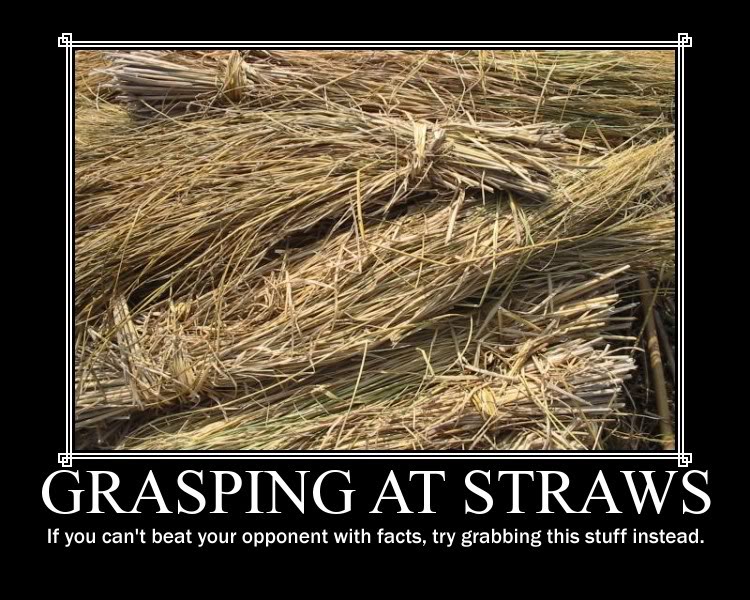Life can sometimes feel like an uphill battle, with challenges and uncertainties looming at every turn. In moments of despair, we often find ourselves searching for solutions, no matter how unlikely they may seem. This phenomenon, known as "grasping at straws," encapsulates the desperate attempts we make when faced with overwhelming odds. The phrase serves as a reminder that, in our most vulnerable moments, we often cling to fleeting hopes rather than accepting our circumstances. It is a reflection of human resilience, yet it also highlights the futility that can accompany our efforts.
When we talk about "grasping at straws," we delve into the depths of human emotion and the instinctual drive to seek comfort. This behavior can manifest in various aspects of life, from personal relationships to professional dilemmas. Understanding the motivations behind such actions can provide valuable insights into our psyche, revealing the lengths we go to in order to regain a sense of control. The phrase invites us to explore the reasons behind our choices and the impact they have on our mental well-being.
In this article, we will explore the concept of "grasping at straws," examining its origins, implications, and the psychological factors that contribute to this desperate behavior. We will also look at how to recognize when we are engaging in such actions and provide guidance on healthier coping mechanisms. Ultimately, this exploration serves as a reminder that while it is natural to seek solutions, we must be mindful of the paths we choose in our quest for clarity and comfort.
What Does "Grasping at Straws" Mean?
The phrase "grasping at straws" refers to the act of trying to find hope or solutions in a hopeless situation. It implies that someone is making desperate attempts to salvage a situation that appears to be beyond rescue. This phrase is often used to describe scenarios where individuals cling to unlikely possibilities instead of facing reality. The origins of this idiom can be traced back to the idea of a drowning person trying to grab onto anything in sight, even if it is as flimsy as a straw.
How Did the Phrase Originate?
The idiom "grasping at straws" has its roots in literature and language. It is believed to have originated from a literal interpretation of someone drowning, who would reach for anything, no matter how insubstantial, in their efforts to stay afloat. The phrase gained popularity in the 16th century and has since become a common expression in the English language, symbolizing futile attempts to find a solution.
Why Do We Grasp at Straws?
Human beings are wired to seek solutions, especially during challenging times. Grasping at straws can be a psychological response to stress, fear, or uncertainty. When faced with overwhelming challenges, individuals may resort to irrational decision-making or cling to unrealistic hopes as a means of coping. This behavior can stem from various factors, including:
- Fear of failure
- Desire for control
- Emotional attachment to outcomes
- Limited options available
Can Grasping at Straws Be Harmful?
While it is natural to want to find solutions in difficult circumstances, consistently grasping at straws can lead to negative consequences. Individuals who engage in this behavior may experience heightened anxiety, disappointment, and feelings of inadequacy. It can also hinder personal growth, as the focus shifts away from constructive problem-solving to futile attempts at salvaging a situation. Recognizing when we are grasping at straws is essential for our mental health and overall well-being.
How Can We Recognize When We Are Grasping at Straws?
Identifying the signs of grasping at straws can be a crucial step in addressing unhealthy coping mechanisms. Some indicators may include:
- Relying on unrealistic solutions
- Ignoring rational advice from others
- Feeling increasingly anxious or overwhelmed
- Repeatedly returning to the same failed strategies
What Are Healthier Alternatives to Grasping at Straws?
Instead of resorting to desperate measures, individuals can adopt healthier coping strategies to navigate challenging situations. Some alternatives include:
- Seeking support from friends or professionals
- Practicing mindfulness and self-reflection
- Setting realistic goals and expectations
- Embracing acceptance and letting go of control
Personal Stories: Grasping at Straws in Real Life
Many individuals have experienced moments of grasping at straws, often leading to transformative realizations. These personal stories highlight the universal nature of this behavior and the lessons learned from it. Whether in relationships, careers, or personal struggles, the journey of seeking hope in dire circumstances is relatable and serves as a testament to the resilience of the human spirit.
Can Grasping at Straws Lead to Personal Growth?
Interestingly, while grasping at straws may initially seem counterproductive, it can sometimes lead to personal growth. When individuals confront their limitations and recognize the futility of their efforts, they may find clarity and strength in acceptance. This realization can pave the way for new perspectives, healthier coping strategies, and ultimately, a more resilient mindset.
Conclusion: Embracing Reality vs. Grasping at Straws
In conclusion, "grasping at straws" serves as a powerful reminder of our innate desire to find hope amidst adversity. While it is natural to seek solutions during challenging times, it is essential to recognize when our efforts may be futile. By embracing reality and adopting healthier coping mechanisms, we can navigate life's obstacles with resilience and grace. Understanding the complexities behind this behavior can empower us to make more informed choices, ultimately leading to personal growth and a greater sense of well-being.
You Might Also Like
The Enigmatic World Of The Crazy Cat LadyEmbrace Elegance And Comfort With White Summer Dresses
Exploring The Mysteries Of The Blobfish In Water
Mastering The Game: Discovering The Chess Best Move
Understanding The Sensations: Does Anal Hurt?
Article Recommendations
- Tiwa Savage Surgery
- Jb Mauney Net Worth
- Kilmer Top Gun
- Melissa Sue Anderson
- P Diddy Kim Kardashian Video
- Jessica Springsteen Married
- Tess Harper Today
- Kyle Singler Wife
- Ground Cloudio
- Elsa Dutton


